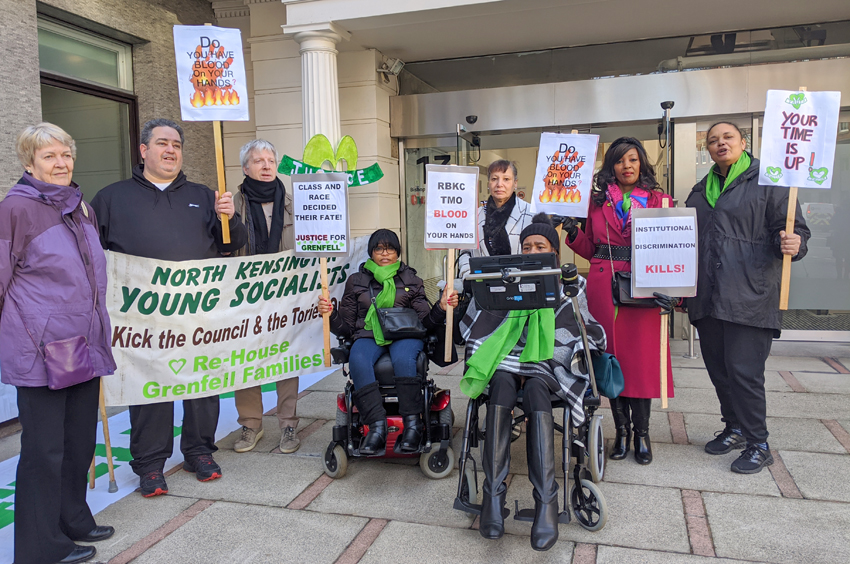
THE GRENFELL Tower fire Inquiry heard from the residents themselves yesterday including Lee Chapman the secretary of the leaseholders association who had repeatedly raised concerns months before the fire broke out that the building was unsafe.
Chapman’s complaints included ‘huge concern’ about gas pipes left exposed in communal areas.
But he said the Tenants Management Organisation (TMO) for Kensington and Chelsea Council ignored the problems.
Chapman, in his evidence to the Inquiry yesterday morning, said: ‘I feel that the way that these concerns were handled is a good reflection of the culture within the TMO and the attitude that it had towards Grenfell Tower residents at the time.
‘Ultimately we were people who wanted to feel safe in our homes, and this should not have been perceived by the TMO as something which was annoying or bothersome.
‘I also believe that as residents in a so-called “social housing block” we were treated as sub citizens or sub class.’
Lee Chapman’s wife Naomi Li escaped from their 22nd floor home when fire ripped through the block on June 14, 2017.
He is the first of a series of former residents to give evidence to the latest phase of the Inquiry.
Chapman wrote to councillors and his local MP in the months before the blaze as part of efforts to improve their living conditions, highlighting anti-social behaviour, broken lifts, and the issue with exposed gas pipes.
He had also complained about defective refurbishment work on their home which left them with holes around newly installed windows.
Writing to the TMO and council about the gas pipes, Chapman said: ‘Please can I insist that you MUST take this issue seriously as should an event happen it is our lives at risk.’
In early March 2017, Chapman wrote about a lack of emergency access for disabled residents.
In a chilling prediction he wrote: ‘I cannot imagine the possible consequences of a fire in this building and as a duty of care the RBKC must ensure that we can get out in an emergency, if there is a need to evacuate.
‘To be clear, if we cannot get out people will die or at best suffer serious injury.
‘There are many people in this building who are immobile, very young or suffer from mental health issues, I would ask for your undivided help in getting this matter resolved for all interested parties.’